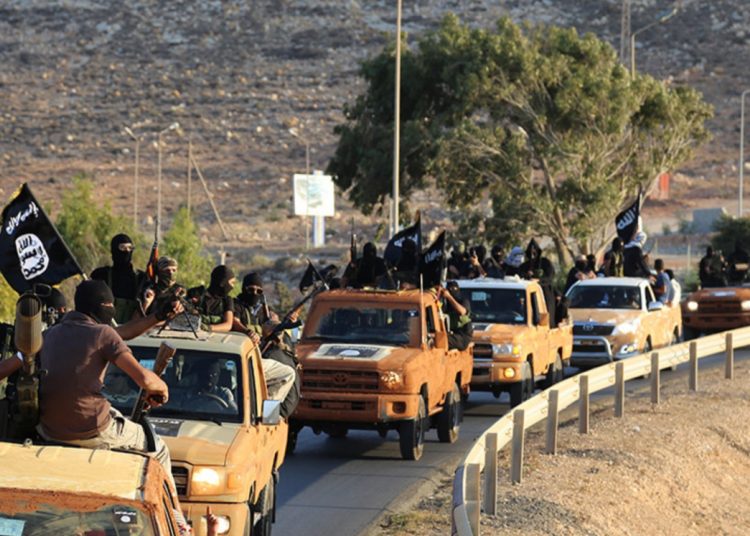Abdullah Bozkurt
The Turkish Armed Forces grew frustrated with the lack of willingness on the part of Syrian rebels to fight against the Islamic State in Iraq and Syria (ISIS) despite air cover, artillery support and arms supplies, a classified memo has revealed.
According to the memo, stamped secret and presented to Deputy Chief of General Staff Gen. Yaşar Güler on June 18, 2016, the rebels backed by Turkey had shown more unwillingness and less courage than usual when it came to battling ISIS militants in the Syrian town of Marea, near the Turkish border.
At the time the US and its allies had already launched an offensive against ISIS in order to capture Manbij with the help of the Syrian Democratic Forces (SDF). Turkey did not join the offensive, claiming that the Kurdish People’s Protection Units (YPG), which forms a part of the SDF, was affiliated with the outlawed Kurdistan Workers’ Party (PKK), with which it has been fighting a separatist war in Turkey for decades.
Although ISIS moved some of its forces to the Manbij area to boost its resistance, providing ample opportunity for Turkish-backed rebels to make some gains in Marea, the poor performance and unwillingness to fight against ISIS seemed quite strange.
The Turkish military memo lamented that the rebels quickly retreat when confronted by ISIS or when facing improvised explosive devices (IEDs) planted by ISIS, not only in the village where the clashes took place but also in the neighboring villages where the rebels faced no action. The retreat had been so fast that there was not enough time for the Turkish army to provide close air support or artillery fire for the rebels. “In most cases, the operations would be halted within a short period of time or even before launching them,” the memo stated.
The Turkish military expressed disappointment at the performance of the rebels, whom it said often left areas that were previously taken over with great difficulty and a number of casualties.

The memo further noted that the rebels rarely sought air cover or airstrikes during an operation even though air assets were made available specifically for the operation. In the rare cases when the rebels asked for a strike on an unidentified target, they provided coordinates that were incompatible with the rules of engagement and the concept developed by the US-led anti-ISIS coalition. The number of Turkish airstrikes were limited to only 37 in the period between June 1 and June 17, 2016.
However, artillery fire support was provided for unidentified targets when the rebels’ request was transmitted via the Special Forces Operations Base (ÖKHÜ-2). Since June 1, Turkish artillery units fired 708 times at 261 targets according to the memo. That was not enough for the rebels, either, as they showed no progress on the field and shied away from action with various excuses, the memo said.
The main reason for the rebel causalities was either sniper fire or car bombs, which were markedly reduced after airstrikes were carried out on depots where bomb-laden vehicles were designed.
The secret document also lists the arms supplies provided by the Turkish military in early June: Six pallets of arms and ammunition were parachuted and 40 trucks loaded with arms, ammunition, supplies and vehicles were shipped to the Marea region.
In the end the note says Turkish military officers were putting pressure on Lt. Gen. Sean MacFarland, the commander of the Combined Joint Task Force-Operation Inherent Resolve, which was mandated to fight against ISIS; US Army Maj. Gen. James Kraft, commander of Special Operations Joint Task Force – Operation Inherent Resolve (SOJTF-OIR); and Col. Kevin C. Leahy, deputy commander, Special Operations Command Central, US Central Command, to bring more air assets such as drones and close air support for rebels in the Marea area.
The note carries notations by Güler, who is now chief of General Staff. He initialed the report and asked that it be submitted to Hulusi Akar, the then-chief of General Staff and currently the minister of defense.












